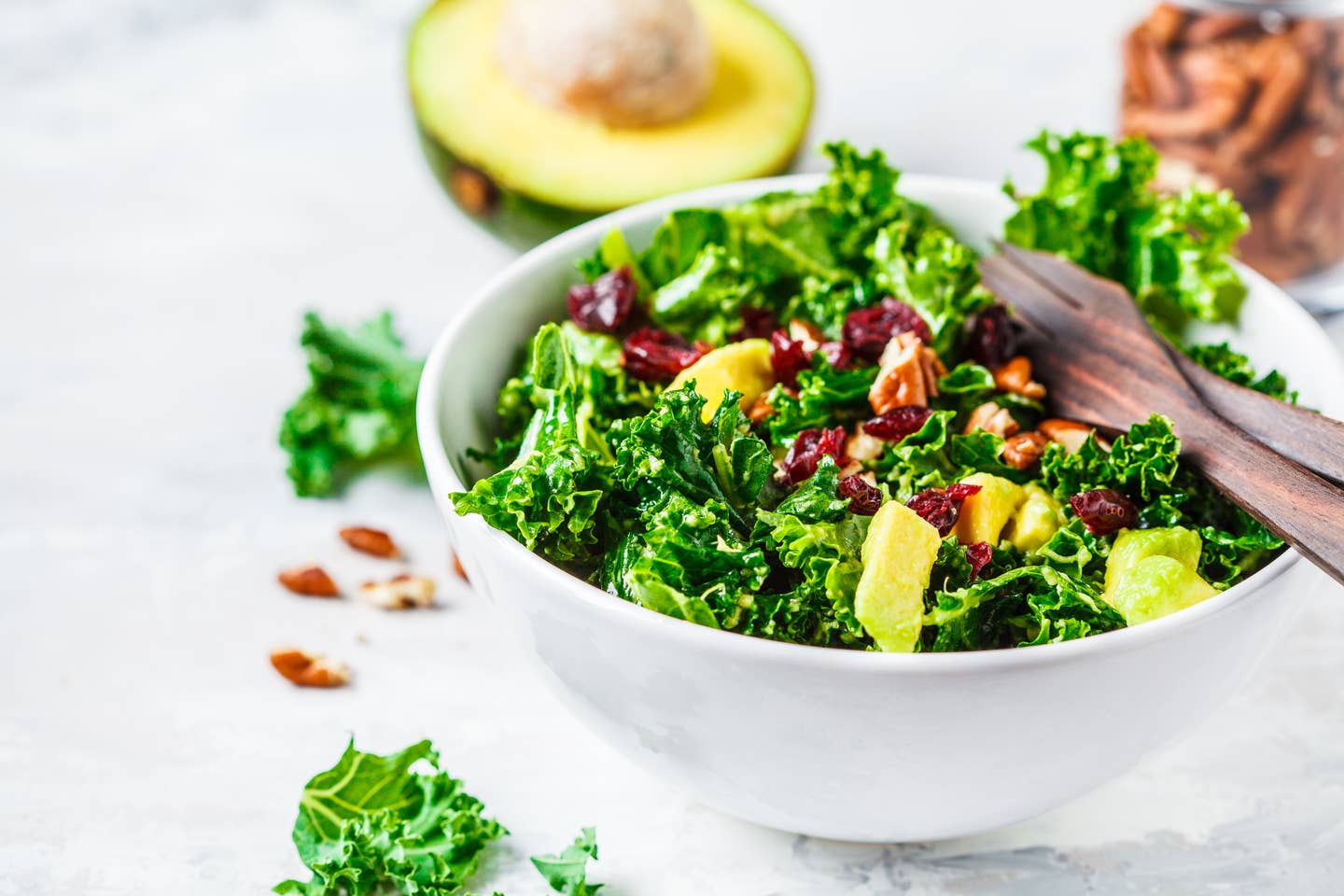
If You’re Plant-Based, You May Be Lacking Iodine, Vital for Metabolism
Plant-based eaters are aware of the need to get enough B12, either by taking supplements or eating plenty of foods fortified with the essential nutrient. Iodine might not be on your radar, but a new study shows it should be. Iodine is essential for thyroid function, which regulates metabolism. Here's what you need to know.
In new research out of Germany, scientists from the Federal Institute for Risk Assessment (BfR) in Berlin looked at the vitamins and minerals in blood and urine samples of 36 adults who followed a plant-based diet and compared them with 36 adults who consumed a mixed or flexitarian diet. Though the study's sample size is relatively small, the results were alarming: One-third of the vegans had iodine levels that were lower than the WHO threshold value for "severe iodine deficiency."
New Research Suggests Vegans May Have Low Levels of Iodine
So what does this mean? “Iodine is a critical vitamin for proper thyroid function. Low iodine can cause issues in thyroid hormone production, which helps to regulate your metabolism,” says Rachel Naar, MS, RD, CDN. “In this study, iodine levels [for some vegans] were dangerously low, as this nutrient is primarily found in animal-based products.” Your thyroid is a vital gland that sits at the base of the neck, and regulates metabolism, hormonal balance, and impacts the function of the heart, muscles, your digestive system, brain development, and bone maintenance. It depends on a good supply of iodine from the diet.
As Amanda A. Kostro Miller, RD, LDN, who serves on the advisory board for Fitter Living, stresses, “This one study was really small, so larger studies need to be done to be able to translate this information to all vegans.” Nevertheless, if you follow a plant-based diet, the findings certainly offer a reminder to pay attention to your iodine intake. The Recommended Dietary Allowances (RDAs) for iodine for men and women ages 18 and older is 150 micrograms daily.
“The Academy of Nutrition and Dietetics states that vegans can be at risk of iodine deficiency if they have a low intake of vegan iodine food sources (iodized salt and sea vegetables),” explains Kostro Miller, adding that vegans should also take care to eat plant-based foods fortified with B12 or getting it in vitamin form to hit the RDA of 2.4 micrograms (this amount increases to 2.6 micrograms while pregnant and 2.8 micrograms while lactating).
The Best Ways to Get More Iodine
Kostro Miller says vegans can get iodine from iodized salt and sea vegetables (such as seaweeds like wakame, kombu, or nori), and through some breads which contains the trace element. “When cooking pasta, boil the pasta in water with iodized salt added,” she says.
Naar adds that taking a multivitamin that contains iodine may also be helpful—consult with your doctor or nutritionist first—as well as incorporating plant foods that include iodine like green beans, kale, and strawberries into your diet. (For a list of iodine content in selected foods, click here.)
While the findings of this recent study may be concerning, it’s still possible to consume a well-rounded plant-based diet with some conscientious planning. “In a 2017 study published in the Journal of the International Society of Sports Nutrition, researchers looked at a vegan diet for athletes in particular,” says Naar. “They still found deficiencies in vitamin B12, iron, zinc, calcium, iodine, and vitamin D. This study however suggested that with strategic planning and appropriate supplementation, a vegan diet can be a complete diet, and can even be appropriate for performance-based athletes as well.”
The bottom line: “Vegan diets can be successful for all stages of life if properly planned and supplementation is added where appropriate. In general, a plant-based diet should include plenty of fruits and vegetables with variety, whole grains, beans, and healthy fats like nuts and seeds,” comments Naar. Like anything in life, thoughtful prep can go a long way.
More From The Beet






